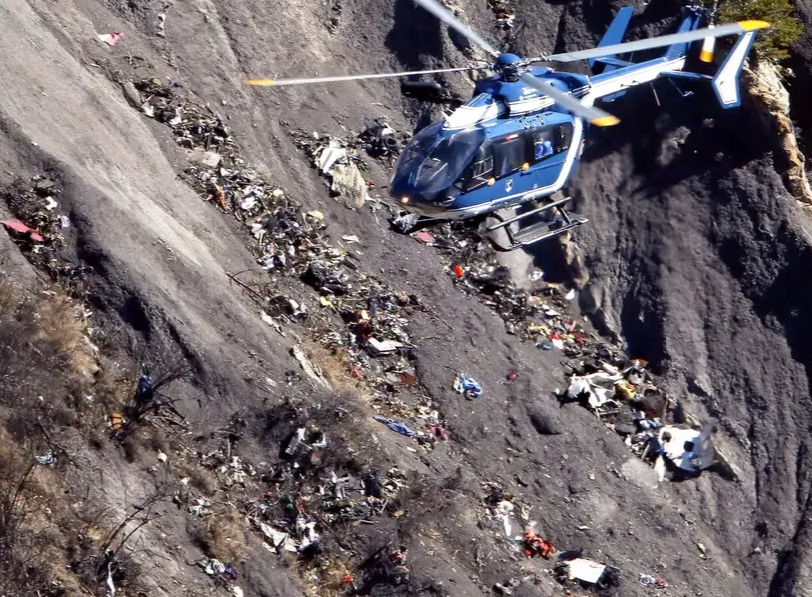
What Happens When Pilots Suffer in Silence?
On March 24, 2015, Germanwings Flight 9525 crashed into the French Alps. The cause? The copilot, struggling with undiagnosed depression, intentionally brought down the plane—killing all 150 people aboard. The tragedy shook aviation to its core and exposed a silent crisis hiding in plain sight: the mental health of pilots.
Note: For more on this crash, you should really check out “Admiral Cloudberg’s” article on Medium about this crash. It’s incredible
A new study from France offers a rare and urgent look behind the cockpit door. Drawing on anonymous responses from 1,220 airline pilots, researchers uncovered unsettling findings: 1 in 4 pilots showed signs of anxiety, 13% had depressive symptoms, and a staggering 40% misused alcohol. Despite the weight of these numbers, many pilots keep their struggles under wraps—afraid that admitting distress could cost them their careers.
How This Study Could Help Redefine Pilot Safety
This isn’t just about pilot well-being—it’s about public health and safety. Commercial airline pilots operate under intense scrutiny and responsibility. The margin for error at 30,000 feet is razor-thin.
The study, published in Frontiers in Public Health, used validated mental health screening tools to assess anxiety and depression. Even though the mental health indicators were lower than those seen in the general French population of similar socioeconomic status, the implications are still serious. When lives depend on a pilot’s split-second decisions, unaddressed mental strain becomes a systemic risk.
In a profession where even routine fatigue can impair judgment, the researchers found that pilots flying multi-sector routes—meaning multiple takeoffs and landings in a single day—had a significantly higher risk of anxiety. Add jet lag, insomnia, and high cognitive load, and the pressure compounds quickly.
The Hidden Risk You’re Missing: Alcohol Misuse in the Skies
Perhaps the most alarming statistic? 40.1% of surveyed pilots had scores indicating alcohol misuse. That’s not just casual overindulgence—that’s clinically risky behavior. While only 0.7% were categorized as dependent, the link between alcohol and mental health was unmistakable. Over half of the pilots with confirmed depression also misused alcohol.
Think of alcohol not just as a substance, but a symptom—a coping tool for chronic stress, poor sleep, and suppressed psychological pain. In the airline industry, where mental health support is still stigmatized and fear of losing one’s license is real, a drink becomes an easier “treatment” than therapy.
This has been the subject of Nathan Fielder’s remarkable HBO show, The Rehearsal.
New Research Reveals 3 Keys to Pilot Mental Health
The study pointed to three critical factors influencing pilots’ mental health:
- Fatigue is a red flag. Pilots reporting higher fatigue levels also scored higher on both anxiety and depression scales.
- Isolation matters. Pilots who felt emotionally isolated were 3–4 times more likely to have mental health symptoms.
- Fear of disclosure is real. Nearly 30% of pilots said they hid their symptoms from their medical examiner to avoid being grounded.
Yet here’s the twist: 54% said they would disclose their struggles—if doing so didn’t threaten their careers.
This signals a pathway forward. What if the system allowed for honest self-reporting and access to confidential support without automatic suspension? What if mental fitness was treated like physical fitness: something you can work on and recover from?
Why Now, and What’s Next?
This is the first major study of its kind in Europe, and it couldn’t be more timely. Post-COVID fatigue, staffing shortages, and geopolitical disruptions are reshaping the aviation world. Pilots are being pushed harder, with fewer safety nets.
Public health professionals, regulators, and airlines now face a choice. Continue with reactive safety checks, or proactively support mental well-being at scale. The researchers suggest prevention programs tailored to at-risk profiles and potential policy shifts—like routine alcohol screening and confidential reporting options.
There’s also a call for longitudinal studies. A snapshot is powerful, but trends over time can guide smarter interventions. Think of it like weather forecasting: turbulence ahead doesn’t mean grounding the flight—but it does mean adjusting course.
Join the Conversation
How do we balance safety and compassion in professions with high stakes?
Should pilot mental health be treated more like a chronic condition than a binary pass/fail status?
What policies would you support to help pilots seek help without risking their jobs?
Let us know your thoughts, and keep this vital conversation flying forward.



